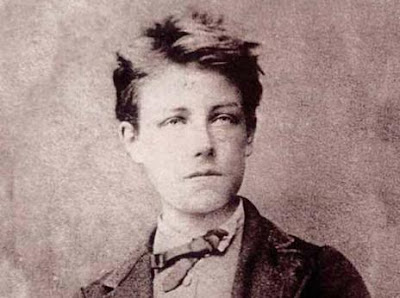Rimbaud Traded Poetry for Life
 |
| Arthur Rimbaud, 1854 - 1891 |
But didn't he squander his literary gift? No he gave literature what he wanted to give it, or maybe what he could give it. There's no point worrying about what never was. Literary works that were never written are no kind of loss. Further, there is no such thing as a higher calling, be it literature, art, education, the ministry, or entrepreneurship, for which one should sacrifice oneself. Life is for the experiencing of it, and only each individual can define how that is meaningful to them. That can include some choices that are pretty bad, like crime, for which one hopefully pays the consequences. (How those choices fit in the scheme of things is another essay.)
But Rimbaud's prose-poems, not great in number, planted many literary seeds, including for the Surrealists. Here's a section from his poem "Childhood," in his book Illuminations.
I am the saint at prayer on the terrace like the peaceful beasts that graze down to the sea of Palestine.
I am the scholar of the dark armchair. Branches and rain hurl themselves at the windows of my library.
I am the pedestrian of the highroad by way of the dwarf woods; the roar of the sluices drowns my steps. I can see for a long time the melancholy wash of the setting sun.
I might well be the child abandoned on the jetty on its way to the high seas, the little farm boy following the lane, its forehead touching the sky.
The paths are rough. The hillocks are covered with broom. The air is motionless. How far away are the birds and the springs! It can only be the end of the world ahead.
Comments
Post a Comment